November 2, 2017
Edited by David Sanders
Specimen Days
1528—Peter S Lotichius, [Peter Lotz], Neo latin poet (Collected Works), is born.
1826—William Haines Lytle, American politician, poet and Brigadier General (Union Army), born in Cincinnati, Ohio (d. 1863), is born.
1899—Eddy [Charles E] du Perron, Dutch author/poet, is born.
1902—Gyula Illyes, Hungarian author/poet (Az Ismertlen Illyes), is born.
1906—Daniil Andreev, Russian poet (d. 1959), is born.
1911—Odysseus Elytis Alepoudellis, Greece, poet (Nobel 1979), is born.
1919—Jorge de Sena, Portuguese engineer/poet (Reino da Estupidez), is born.
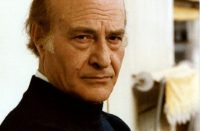
Letters will exist. People will read and grab
History’s tail once more. Just let the vineyards gallop and the sky
remain
Unbridled as children want it
With roosters and pinecones and blue kites
flags
On Saint Heracleitos’s day
—from “For Efessos” by Odysseus Elytis
[transl. by Olga Broumas]
“Letters will exist. People will read and grab / History’s tail once more.” – Odysseus Elytis
World Poetry
A Poet in the Dock as Israel Hunts 'Lone Wolf' Assailants Online
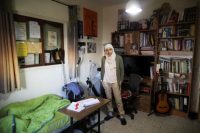
A week after Dareen Tatour posted a poem on Facebook entitled "Resist, my people, resist," Israeli police came to her home in the middle of the night and arrested her. The Arab-Israeli poet will hear next Monday whether she will be jailed on charges of incitement to violence and supporting a terrorist group. The average sentence in similar cases is nine months, though the maximum term she could face is five years.
Meiji Era Haiku Poet Shiki, a Hall of Famer in Both Go and Baseball
Masaoka Shiki, a celebrated haiku poet in the Meiji Era (1868-1912), will be enshrined in the Go Hall of Fame, 15 years after he received similar accolades for his contributions to baseball. Nihon Ki-in, the Japanese association in charge of the ancient board game, decided on Oct. 24 to honor Shiki (1867-1902) as a person of merit during the 14th commendation committee meeting for the Go Hall of Fame.
Polish Parliament Honours Poet Zbigniew Herbert
Poland's parliament has declared 2018 the Year of Zbigniew Herbert as the 20th anniversary of the poet's death will be marked on 28 July next year. Parliament said Herbert was “one of the most prominent 20th-century Polish and European poets”. “In his poetry, Herbert expressed a love for freedom as well as faith in the dignity and moral strength of the individual”, parliament added in a resolution. It also stressed that Herbert introduced into the Polish language many phrases that “build our identity and imagination”.
A week after Dareen Tatour posted a poem on Facebook entitled “Resist, my people, resist,” Israeli police arrested her in the middle of the night.
Recent Reviews
Back to Black -Charlotte Gann’s Noir
by John Field
Drenched in Chandler’s LA sun it isn’t, but Charlotte Gann’s Noir views suburbia through the eyes of a forensics team. The collection’s first section, ‘Surveillance’, opens with ‘Puzzle’: ‘If I look closely I can just see how these / red-roofed houses slot together – where / to unclip the lid on each, lift it gently / and peep inside. In this one, a lad with his back / to a box-room door plays Space Invaders’. Gann’s first person narrator remains a mystery, enjoying the anonymous omniscience of the surveillance age and the modular construction of her vision of suburbia presents private lives as fragile and doll-like.
On Balance Poetry Review: An Imagination that Never Closes
Sinead Morrissey’s Forward-winning collection is a breathtaking feat, blending fiction, memoir and history
by Kate Kellaway
Sinead Morrissey’s On Balance, which has just won this year’s Forward prize, is a collection that keeps extending itself and that shares many of the satisfactions of fiction, memoir and history (there is an especially arresting poem about a model of Napoleon’s horse, another fine poem about the aviator Lilian Bland and an astounding poem based on a garish photograph of tsarist Russia). Even the poems that cross the finishing line with a flourish are open-ended, leaving one with the sense that there will always be more to say, and this is because Morrissey is possessed of her own invigorating brand of Irish fluency and an imagination that never closes.
The Many Faces of Sylvia Plath: In Focusing on her Death, We Miss her Capacity for Life
by Kelly Coyne
In a letter to her brother Warren—that appears in the first of two volumes of The Letters of Sylvia Plath—Sylvia Plath writes of her mother: “She can’t take big problems or excitements without staying awake all night, and so our main responsibility is to give her the illusion (only now it hardly seems like an illusion) that we are happy and successful and independent.” Plath’s mother, Aurelia, published the only other version of her letters, in 1975, and her daughter’s entreaty was excised in the version of this letter made public, until now.
Sinead Morrissey’s On Balance is a collection that keeps extending itself and that shares many of the satisfactions of fiction, memoir, and history.
Broadsides
Why Tyrants Love to Write Poetry
by Benjamin Ramm
Poetry is an art of refinement, synonymous with delicacy and sensitivity. It seems counterintuitive that it might also be a celebration of brutality, and the art form beloved of tyrants. But from classical antiquity to modernity, dictators have been inspired to write verse – seeking solace, intimacy, or glory. Their work informs us about the nature of power, the abiding appeal of poetry, and the perils of artistic interpretation.
Judith or Salomé? Ambiguity & inequality in the poetry of Frederick Seidel
by Matthew Halliday
It is not always easy to distinguish between Judith and Salomé in the Western art tradition. Are we viewing Judith’s faithfulness to God in a state of exaltation or jealous and vindictive Salomé, with the sobering head of John the Baptist staring right back at us? Our appreciation of what is before us, ethically and aesthetically, is predicated on our interpretation of the interrelations of such signs that are necessary for us to appreciate and evaluate it. In order to read the images that are presented to us we must expressly call upon our knowledge of how one reads: what are the accepted conventions of art that give us the necessary preliminary information in order that we may see. The art historian Erwin Panofsky used this problem of interpretation as evidence of the importance of knowledge for accessing art.
Poetry from Honduras’ Our Little Roses Home for Girls: Finding Joy and Forgiveness in Verse
by Spencer Reece
Roberto Sosa, a well-known Honduran poet who died the year before I arrived there, said, “It is practically a poetic country. There are more poets than almost anywhere.” Our classroom starts to prove that boast. Local Honduran poets visit. The girls grow articulate and more confident. Poetry is not beyond them. The poems not only come out of their hands but memorized poems pour out of their mouths. One after another the girls recite and recite and recite. They recite Shakespeare for the board members. Not a dry eye among the businessmen and attorneys. The girls write poems first in Spanish, then translate them into English, or first in English and then in Spanish.
Remembering Richard Wilbur
By A. E. Stallings
I am lucky to have a number of memories of Richard Wilbur, who died on October 14. The first time I heard him read was in the mid-90s. I was working then as a secretary for a professor at Georgia State University in Atlanta, hoping, I suppose, to keep some connection to academia and a library while working on my own writing. An obvious advantage was attending events in the English department when celebrated writers swanned through town. Only dimly aware of Richard Wilbur at this time, I probably first encountered his poem “Juggler” from an English department flier Scotch-taped onto the library’s glass door. No doubt I did not fully appreciate the elegance and sprezzatura of this poem-performance—its stanzas of patterned line lengths and pure and off rhymes, the philosophical conceit, its mix of elaborate syntax and everyday statement, its precise etymological use of “resilience”—literally to bounce back—jostling with one-syllable exclamations like “whee” and even “damn.” Possibly, I thought, with the innocent bravado that is somewhat necessary in a young poet, I can do that too.
From classical antiquity to modernity, dictators have been inspired to write verse – seeking solace, intimacy, or glory.
Drafts & Fragments
Behind Bars: 61 Poets Who Went To Jail
by Joanne Jeffries
While freedom of speech is generally promoted today, this wasn’t always the case, and a lot of poets have caused a stir with their unfiltered approach. Controversial topics and unfavourable connections have landed many poets in hot water, so much so that a few of them have ended up behind bars because of it. Of course, there are a number of poets that have gone to jail for reasons that aren’t so closely related to their craft, such as throwing a brick through a police station window! Below, we take a look at 61 poets who went to jail in further detail…
While freedom of speech is generally promoted today, this wasn’t always the case, and a lot of poets have caused a stir with their unfiltered words.
Poetry In the News
Fay Chiang, 65, Poet Who Championed Asian-American Culture, Dies
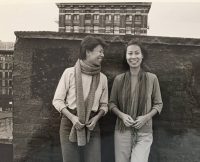
The poet Fay Chiang, right, in the 1970s with Mary Lum, an actress. Ms. Chiang worked with groups in Chinatown and on the Lower East Side to further Chinese culture in New York. Credit Doris Lum Mazur Fay Chiang, whose quest to understand her identity as a child of Chinese immigrants found outlets in vivid poetry and in community activism that helped elevate Asian-American education and culture, died on Oct. 20 in a hospice in the Bronx. She was 65.
Could Walt Whitman’s Brooklyn Home Become a Landmark?
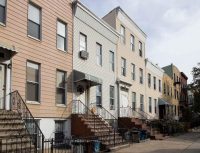
One of America’s most influential 19th century poets, Walt Whitman was a Brooklynite for 28 years and through many changes in career — printer, journalist, teacher. But few physical reminders of his time in the borough remain. One home connected to Whitman, 99 Ryerson Street in Wallabout, is where he self-published Leaves of Grass, now considered a masterwork of American literature.
The poet Fay Chiang died on Oct. 20 in a hospice in the Bronx.
New Books
Almost Entirely: Poems by Jennifer Wallace
[Paperback] Paraclete Press, 128 pp., $18.00
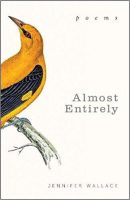
Rooted in the grit of urban Baltimore and the forests of rural Massachusetts, these poems remind us that life’s tensions and polarities are energies we carry within ourselves. These are poems of witness and commentary, conversation and meditation. They offer moments of close looking, and of looking away; of loving, and of bungled attempts to be more loving. They call us to look long and hard— and generously —at our lives. Written with radiant honesty and fierce tenderness, they suggest a path of inner discovery where mystery awaits us in the ordinary.
Manhattanite by Aaron Poochigian
[Paperback] Able Muse Press, 90 pp., $18.95
Aaron Poochigian's prizewinning second collection of poetry, Manhattanite, is by turns frenzied and focused. It examines New York's juxtaposed symbols of towering achievement and monumental desolation, and then traverses the country to California's Central Valley, where the poet reclaims his grandparents' home. Poochigian consistently entertains, whether his theme is lamentation or celebration–a grizzled urban pigeon (scavenging for "the sort of faith/ that holds for here and now and vibes like song") or an Ohio wind turbine (an "ungatherable/ iron flower" seen "juggling . . . / three arms' worth/ of gale-force wind"). Manhattanite is, deservedly, the winner of the 2016 Able Muse Book Award.
Museum of Kindness by Susan Elmslie
[Paperback] Brick Books, 112 pp., $20.00
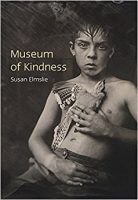
Museum of Kindness, Montreal poet Susan Elmslie's searching second collection of poetry, is a book that bravely examines "genres" familiar and hard to fathom: the school shooting, PTSD, raising a child who has a disability. It is a collection about thresholds big and small. In poems grounded in the domestic and in workaday life, poems burnished by silence and the weight of the unspoken, poems by turns ironic and sincere, Elmslie asks "What, exactly, is / unthinkable?" Confronted by "the mismatch / between our need for meaning / and our inability to find it," the poet reflects on the possibility of the miraculous in hard-won insights, in "a comparatively / uncomplicated joy."
Augury: Poems by Eric Pankey
[Paperback] Milkweed Editions, 88 pp., $16.00
From celebrated poet Eric Pankey, a collection exploring the presence of the divine in the seemingly ordinary. The ancient Romans practiced augury, reading omens in bird's flight patterns. In the poems of Augury, revelation is found in nature's smallest details: a lizard's quick movements, a tree scarred by lighting, the white curve of a snail's shell. Here the sensory world and the imagined one collide in unexpected and wonderful ways, as Pankey scrutinizes the physical for meaning, and that meaning for truth.
Time Beginnings: Poems by James Applewhite
[Paperback] LSU Press, 72 pp., $12.65
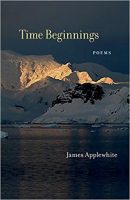
In his poem “Afterward,” James Applewhite imagines a curious Eve in the Garden of Eden, her eye falling upon a twisting river and an S-shaped snake before she eats from the tree of knowledge, choosing change over stasis. Applewhite’s new collection Time Beginnings casts a keenly observant eye on the ever-varied natural world and meditates on the place of humans within it. In these philosophical poems, the slow creation of new planets in the farthest reaches of the galaxy mirrors the development of single-celled Earth organisms whose “first awareness . . . foretell[s] a consciousness / of self, the life lived knowing of death.”
Museum of Kindness is a book that bravely examines “genres” familiar and hard to fathom: school shootings, PTSD, raising a child with a disability.
Correspondences
“A Strange Sort of Periscope”: John Freeman on Poetry and Politics
by Angela Stubbs
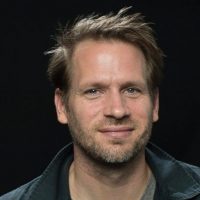
John Freeman is a word slayer, known for his keen editorial eye. But he is just as keen to illuminate the stories of people in all lands. In the past several weeks, Freeman has released his debut book of poems, Maps, an anthology of essays titled Tales Of Two Americas: Stories of Inequality in a Divided Nation, and the fourth issue of Freeman’s, his literary journal. All his literary endeavors are meditations on memory and love, which feel like guideposts on a search for authentic self-knowledge. In his poems, Freeman manages to offer an antidote to suffering, chaos, and pain by illuminating the loneliest, darkest places in each of us. His work is its own form of cognitive behavioral therapy for the reader. Instead of probing at the root cause of pain, his poems ask us to acknowledge and appreciate the journey, rethinking our attitude toward it. I emailed with John over the past month to discuss politics, poetry, and why imagination is at the heart of all our experiences.
Jen Benka Believes Poetry Can Improve the World
A chat with the Executive Director of the Academy of American Poets and Poets.org.
by Ruben Quesada
In her role as Executive Director of the Academy of American Poets, Jen Benka is responsible for programs and publications, including Poets.org, Poem-a-Day, and the magazine for members, American Poets. She is also the author of two books of poetry, A Box of Longing With Fifty Drawers (Soft Skull Press, 2003) and Pinko (Hanging Loose, 2013), and has published poems most recently in the Brooklyn Rail and the Awl.
John Freeman is a word slayer, known for his keen editorial eye. But he is just as keen to illuminate the stories of people in all lands.
Envoi: Editor’s Notes
Lessons from the Past: Richard Wilbur
"I don't think that I explore myself in poetry in the way in which some so-called confessional poets do, although I must say I am writing many more poems out of my actual experience and my relationships. But I usually have a certain sense of distance from my material, a feeling that I am not spilling my guts but arranging some materials and trying to find out the truth about them. If, in the process, I also find out something about myself, I think it is indirectly done. It is the thing, and not myself, that I set out to explore. But then, having chosen my subject and explored it, and having seen what I can say, I suppose one result of the poem is that I know myself a little better. There are certain things I find that I will not say, and there are certain matters to which I keep coming back. I would rather not name them because I think they are clear enough in the poems. The funny thing is that I often won't know that I have reapproached a subject until a new poem has been finished. Then I will say, oh yes, this turned out to be that question again."
From the Paris Review: Richard Wilbur, The Art of Poetry No. 22
“I don’t think explore myself in poetry in the way in which confessional poets do, although I must say I am writing poems out of my actual experience.” – Richard Wilbur